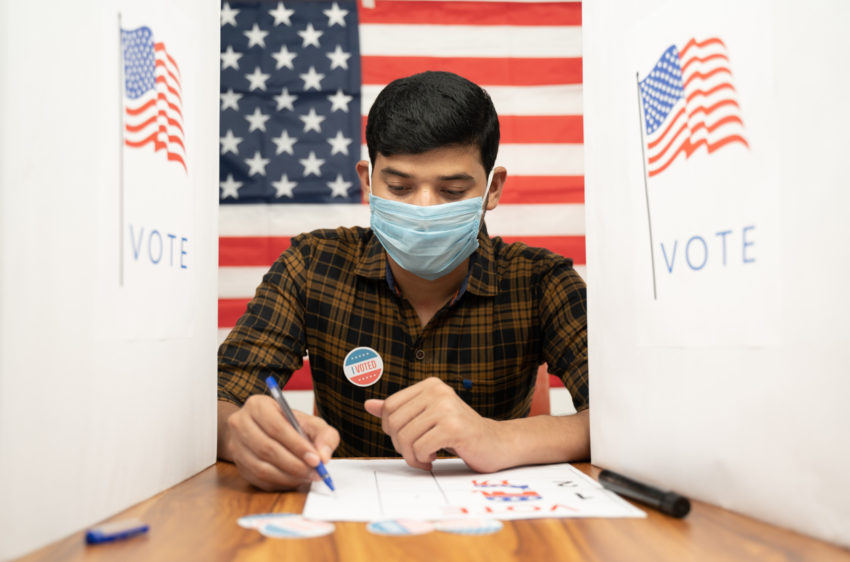Curious about whether non-citizens can vote in U.S. elections? Well, federal law says no, with severe penalties for those who break the rules. But here’s where it gets interesting: some states and municipalities actually allow noncitizens to vote in local races. Plus, studies show that illegal voting by noncitizens is extremely rare. In this article, we’ll dive into the laws surrounding noncitizen voting, explore verification processes for mail-in ballots, and discuss the voting rights of undocumented immigrants and noncitizen legal residents. Get ready to have your question answered!
Federal Laws on Noncitizens Voting in U.S. Elections
Noncitizens are prohibited from voting in federal elections, and the 1996 law imposes penalties for those who vote illegally. However, state and federal regulations vary when it comes to noncitizen voting in local races. While some municipalities allow noncitizens, including undocumented immigrants, to vote in local elections, others only grant voting rights to noncitizen legal residents. Advocacy efforts have been made to improve overseas voting by providing online tools for voter registration and absentee ballot requests. US citizens residing abroad can still exercise their right to vote in Presidential and Congressional elections by registering using their last residential address in the US. Additionally, children of former residents may be eligible to vote depending on state laws. It is important for individuals to stay informed about their specific eligibility requirements and use available resources for voter registration.
Studies on Noncitizen Voting
Recent research conducted by the Brennan Center for Justice found that only about 30 potential cases of noncitizen voting were identified out of 23.5 million votes cast in 42 jurisdictions during the 2016 election. This study provides statistical evidence that the incidence of noncitizen voting is extremely rare. The impact of these few potential cases on election outcomes is negligible, given the vast number of votes cast. Public opinion on noncitizen voting varies, with some advocating for stricter laws to prevent any possibility of illegal voting and others arguing for more inclusive policies to promote democratic participation. Challenges to noncitizen voting laws often arise from legal debates regarding their constitutionality and potential infringement on the rights of noncitizens. International perspectives on noncitizen voting differ across countries, as each nation has its own set of laws and regulations governing voter eligibility based on citizenship status.
State and Municipal Laws on Noncitizen Voting
State and municipal laws allow certain noncitizens, such as lawful permanent residents, to vote in local elections. However, there are limitations on noncitizen voting rights. While federal law prohibits noncitizens from voting in federal elections, it does not prohibit states or municipalities from granting them the right to vote in local races. This has implications for local elections and can affect public opinion on the matter. Legal challenges often arise when it comes to noncitizen voting laws, whether they include undocumented immigrants or only apply to legal residents. It is important to consider voter accessibility when implementing these laws, ensuring that eligible voters can easily exercise their right to vote while maintaining the integrity of the electoral process.
Verification of Mail-in and Absentee Ballots
To ensure the integrity of mail-in and absentee ballots, make sure to familiarize yourself with the verification procedures in your state. Here are three important steps that are typically involved in the verification process:
- Signature matching: Election officials compare the signature on your ballot envelope with the signature on file to confirm your identity.
- Address verification: Your address is checked against official records to ensure you are registered at the correct location.
- Security measures: Various security measures, such as barcode scanning and tamper-evident envelopes, may be implemented to safeguard your ballot.
These procedures are put in place to detect and prevent fraudulent voting. If any irregularities or discrepancies arise during the verification process, election officials have systems in place to investigate and address them. By understanding and following these procedures, you can help maintain the integrity of our elections.
Dropping Off Ballots for Others
If you want to drop off someone else’s ballot, familiarize yourself with the rules in your state. Each state has different regulations regarding who is allowed to drop off ballots on behalf of voters. Some states allow designated individuals, such as family members or caregivers, while others have specific requirements and restrictions for ballot drop-off. These rules are in place to ensure accessibility for voters who may have difficulty returning their ballots in person. By implementing ballot security measures, such as signature matching and address verification, states aim to prevent voter fraud and maintain election integrity. However, it is important to strike a balance between voter participation and election integrity when considering the implications of these drop-off rules.
Voting Rights of Undocumented Immigrants and Noncitizen Legal Residents
In the previous subtopic, we discussed the rules and regulations regarding dropping off ballots for others. Now, let’s explore the voting rights of undocumented immigrants and noncitizen legal residents. It is important to note that many of these voting laws face legal challenges. Municipalities have their own voting regulations which may differ from state or federal laws. Some key points to consider are:
- Legal challenges: The implementation of noncitizen voting laws, whether inclusive of undocumented immigrants or limited to legal residents, often faces legal challenges upon passage.
- Municipal voting laws: Different municipalities have specific laws regarding noncitizen voting, with some allowing both documented and undocumented immigrants to vote in local elections.
- Advocacy efforts: Various organizations like the Overseas Vote Foundation and US Vote Foundation strive to provide voter services and advocacy for Americans living abroad.
These factors contribute to the complexity surrounding the voting eligibility and rights of undocumented immigrants and noncitizen legal residents.




